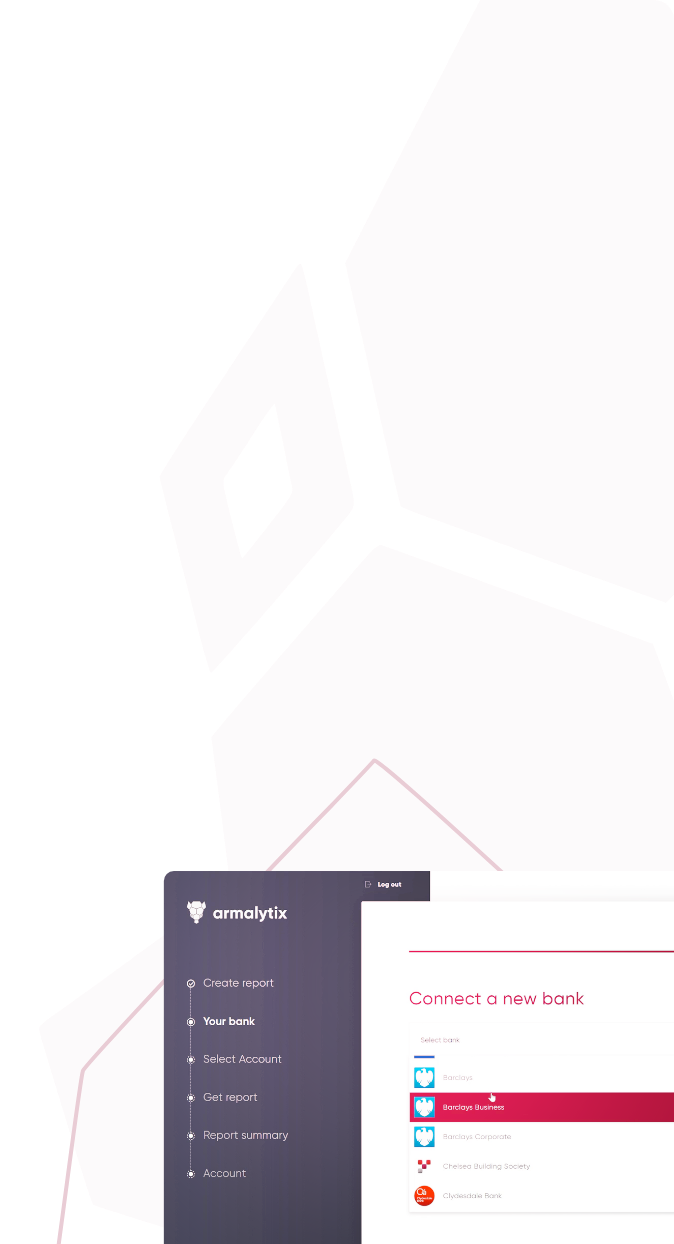
Source of Funds and Commercial Property
With greater regulatory pressure, there is a growing need for more robust commercial property checks as firms tighten their AML processes. Exploring this issue in our latest webinar, we were delighted to be joined by Norman Denton, Senior Compliance and Regulatory Specialist at Legal Eye.
Looking at the AML, Source of Funds (SoF) and Source of Wealth (SoW) requirements facing commercial property teams, Norman outlined how best to deal with risk in commercial transactions. Tom Lyes, Head of Legal and Property at Armalytix, also asked Norman some pertinent questions regarding SoF, SoW and risk.
This article provides a brief overview of Tom and Norman’s insightful discussion, and you can watch the webinar in full here.
A quick refresher
AML regulations require that solicitors undertake appropriate due diligence on clients and transactions, and conduct ongoing monitoring throughout the relationship.
But frustratingly, there is no one-size-fits-all rule about how and when to do this.
In general, solicitors must ask clients about their SoW, and where the funds for any transactions have come from. While not expected to act like financial investigators, solicitors are expected to have a reasonable understanding of their clients to establish if there are any grounds for suspicion. Crucially, under the Proceeds of Crime Act 2002, solicitors may commit an offence if they had grounds to suspect illegal activity but failed to do so.
The Legal Sector Affinity Group (LSAG) provides some guidance which references funding checks in the risk assessment process.
One key takeaway provided by Norman is the need to document the SoF and SoW checks conducted on each client/matter, as the Law Society can ask for this information at any time as part of the audit process.
Risk-based assessment
When it comes to AML checks, firms have been criticised for taking the word of clients at face value. As such, it is prudent to ask for supporting evidence, make sure you understand it, and consider if it raises further questions. Whether or not additional documentation is required will depend on the firm’s risk assessment processes and whether the risk level is determined to be low, medium, or high.
In short, while fee-earners must consider SoF and SoW for all clients and transactions, the extent of the checks will vary depending on the risk profile presented in each case.
For example, additional checks should occur where the funding seems to be outside the apparent financial capacity of the client, or where there are unexplained changes to the SoF. A particularly messy transaction might involve complex company structures, where it is difficult to establish the Beneficial Owners, where there are international funds from higher-risk countries, or pushy and urgent clients.
Where a transaction throws up questions, solicitors must investigate further. Notably, Norman warned solicitors not to continue with suspicious transactions until the client provides evidence to answer all questions satisfactorily. In addition, where a fee-earner is satisfied and has no AML concerns, they should list their reasons on the file.
Evidence gathering
Fundamentally, while it may appear to be more complicated due to the structures and terminology involved, there is little difference when it comes to SoF and SoW evidence gathering for an individual or commercial transaction. Solicitors still need to know which bank account is being used to send the funds, how the client obtained the funds, and whether the explanation for the funds appears realistic.
One top tip from Norman was to use Companies House as part of the evidence-gathering process, as it provides a wealth of information (e.g. Beneficial Owners, summary of accounts, etc.). Solicitors should use the available data to inform their risk assessments and stay alert to any changes recorded at Companies House. While this information is historic, it can aid the understanding of a company, and provide a basis to ask for additional evidence.
Fee-earners should not be afraid to inform clients about any issues/questions they have, or to place the onus on the client to produce the necessary documentary evidence.
Spotting red flags
Money launderers are constantly finding new ways to launder money, so staying abreast of what is happening is vital to identify potential warning signs. Where there are one or more red flags, this doesn’t mean that money laundering is automatically taking place. However, it does mean that further enquiry is needed.
Chapter 18 of the LSAG provides a detailed (although not complete) list of red flags around generic work types and SoW and SoF.
Crucially, Norman stressed that addressing SoF and SoW at the earliest opportunity is vital. As such, these checks should form part of the initial client due diligence and risk assessment process. It is far easier and less risky to terminate a transaction (and to submit a SAR) at this stage than a week before exchange/completion.
How Armalytix can help
The Armalytix solution helps to streamline evidence-based documentation collection with an easy-to-read report that aids compliance. Making it easier for solicitors to complete the necessary checks and gather the relevant evidence from their clients, our three-stage approach includes:
- A customisable fact-finding process
- The ability to connect directly to banks for transaction details
- A simple, company focused SoF questionnaire endorsed by Legal Eye
Conclusion
Ensuring that solicitors carry out the necessary AML checks on commercial property transactions has never been more critical. Tools like Armalytix help fee-earners meet and demonstrate their responsibilities whilst saving time and money. By highlighting the genuinely risky stuff early in a transaction, solicitors are empowered to make faster, more accurate decisions.
Book a demo to find out more.



